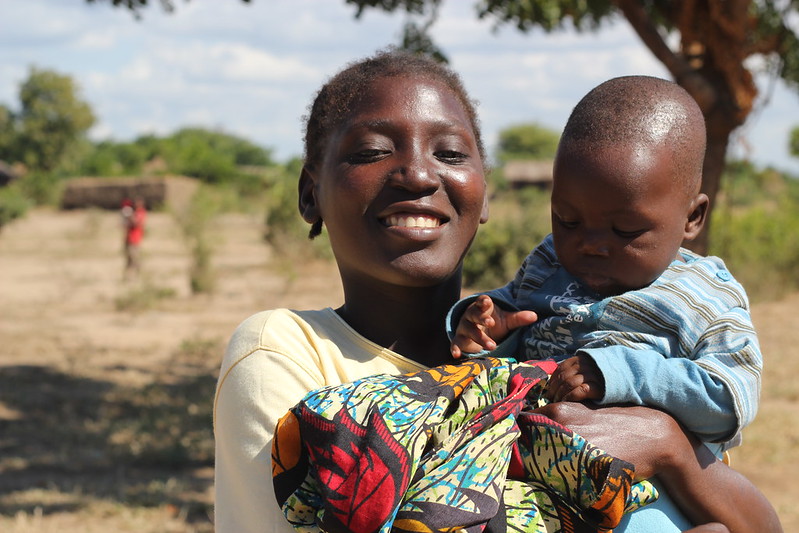Hope for Mothers in Malawi
 Malawi is one of the most impoverished countries in the world, with approximately 71% of the population earning less than $1.90 a day. Poverty hinders access to health care services, thus putting vulnerable, for example, pregnant women, at extreme risk and dimming the hope for mothers in Malawi. Additionally, there is a lack of awareness regarding obstetric complications, further increasing the risk for them.
Malawi is one of the most impoverished countries in the world, with approximately 71% of the population earning less than $1.90 a day. Poverty hinders access to health care services, thus putting vulnerable, for example, pregnant women, at extreme risk and dimming the hope for mothers in Malawi. Additionally, there is a lack of awareness regarding obstetric complications, further increasing the risk for them.
Maternal Mortality in Malawi
These factors have resulted in extremely high maternal mortality in Malawi, with 381 deaths per 100,000 live births recorded in 2020. This rate ranks Malawi at number 25 out of 182 countries. However, the current statistics show an improvement from the previously recorded 439 deaths per 100,000 live births in 2017, which has increased the hopes of survival for the mothers in Malawi.
The Good News
The reduction in maternal mortality has been made possible due to the dedicated efforts of individuals, the government of Malawi and organizations like the United Nations (U.N.), the United States Agency for International Development (USAID) and more. Efforts to reduce maternal deaths and improve conditions for women are ongoing.
Various organizations and individuals are taking measures to enhance maternal health and achieve Sustainable Development Goal (SDG) 3.1, which aims to reduce maternal deaths to 70 per 100,000 live births or no more than 140 per 100,000 live births worldwide.
Two notable individuals in this regard are Lucy Msukwa and Mercy Kafotokoza. The loss of their loved ones due to a lack of access to health care facilities motivated them to start initiatives aimed at ensuring the safety of mothers during pregnancy and childbirth.
Uchembere Wabwino Maternity Ltd
In 2019, Msukwa started a clinic, Uchembere Wabwino Maternity Ltd, in Mzuzu to provide better health care services to pregnant women and educate them about complications. Msukwa, a certified nurse and midwife, graduated from an Academy for Women Entrepreneurs program in 2021. She received a $10,000 grant to improve the clinic’s facilities and train her staff.
Furthermore, the clinic also provides sexual and reproductive health services, family planning services and preconception services, along with educating pregnant women, hence creating hope for mothers in Malawi. A 2023 report by the United States African Development Foundation (USADF) highlighted several achievements of the clinic: the number of patients increased from 1,894 to 5,000, zero deaths were recorded during deliveries and the clinic’s business revenues improved.
Msukwa has continued to work for women and has become a beacon of hope for mothers in Malawi. She is also working to end period poverty in Mzuzu and her vision is to implement innovative, data-driven programs to enhance women’s access to health care services.
Nurses on Bikes
In 2016, Kafotokoza, now a registered nurse, founded Wandikweza to reduce deaths from preventable causes and provide accessible health care to people living in remote areas of Malawi, where approximately 82% of the population lives. Wandikweza has various sub-programs, such as community health workers, mobile clinics, community engagement and health centers focused on improving maternal health in rural areas.
In 2019, it launched another initiative, Nurses On Bikes. It provides trained nurses with bikes to care for pregnant women. Wandikweza is running Nurses On Bikes in Dowa and Mangochi areas, with 14 nurses who have served 21,901 women in one quarter of 2024. Nurses On Bikes ignites new hope for mothers living in remote areas of Malawi who previously had no access to health care facilities due to lack of transport or finances.
Lessons for the Future
“One person can change the world”- Rosa Parks. Msukwa and Kafotokoza’s journeys are powerful reminders that one individual can make a meaningful difference and that involving local actors is extremely important to improve maternal health. Following the success of these initiatives, collaboration between international organizations and local communities has intensified.
One such effort is the Vodafone Foundation’s launch of the “m-mama” project in Malawi in 2025. This emergency referral and transport system, already operational in Tanzania and Lesotho, will provide life-saving services to 12,600 pregnant women and babies. After its launch, the Government of Malawi will be able to sustain the project for just $350,000, which is less than the cost of two new ambulances. These collaborations offer a promising future full of hope for mothers in Malawi.
– Maria Waleed
Maria is based in Yokohama, Kanagawa, Japan and focuses on Good News and Global Health for The Borgen Project.
Photo: Flickr
